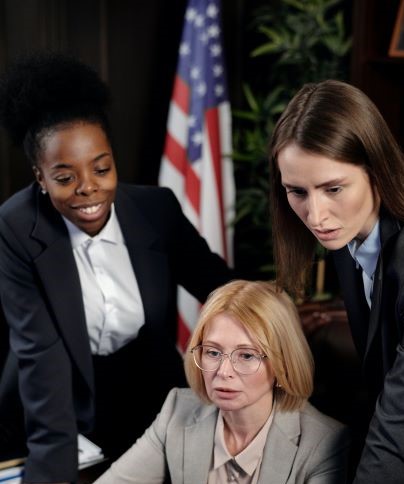HISTORY OF PRO-LIFE FEMINISM
New insight is offered into the roots of pro-life feminism. The early suffragist movement was a movement concerned not only with the right-to-vote but also with securing human rights for all persons. Most prominent women’s rights activists during the suffragist movement were also abolitionists and were unequivocally pro-life.
The Feminist Case Against Abortion “Abortion is the ultimate exploitation of women.” Alice Paul, Author of the Original E.R.A. (Equal Rights Amendment), 1923.
“Sweeter even than to have had the joy of caring for children of my own has it been to me to help bring about a better state of things for mothers generally, so their unborn little ones could not be willed away from them.” Susan B. Anthony, 1889
This presentation defends women’s rights and the belief that these rights do not come at the expense of others, especially those of our pre-born children.
In calling for abortion rights as the ultimate guarantee that women can control their own bodies, abortion advocates are viewing a woman’s body as a kind of territory to be subdued, interfered with, and dominated. This is not a feminist perspective, regardless of how many people maintain that it is.
Trained volunteer educators offer a commitment to the philosophy that all human life from conception until natural death deserves dignity and protection.
The Elizabeth Cady Stanton Lectures discuss prominent feminist philosophies and critique their failure to recognize the unborn child’s right to life.
Without known exception, early American feminists condemned abortion in the strongest possible terms. In Susan B. Anthony’s newsletter, The Revolution, abortion was described as “child murder”, “infanticide,” and “foeticide.” Elizabeth Cady Stanton, who in 1848 organized the first women’s rights convention in Seneca Falls, New York, classified abortion as a form of infanticide and said, “When we consider that women are treated as property, it is degrading to women that we should treat our children as property to be disposed of as we see fit.”
The anti-abortion laws that early feminists worked so hard to enact to protect women and children were the very ones destroyed by the Roe vs. Wade decision 100 years later – a decision hailed by the National Organization for Women (NOW) as the “emancipation of women.”
The Elizabeth Cady Stanton Lectures discuss the possibility that a pro-life philosophy is and can be consistent with prominent feminist philosophies.
Content provided courtesy of pennlife.org


